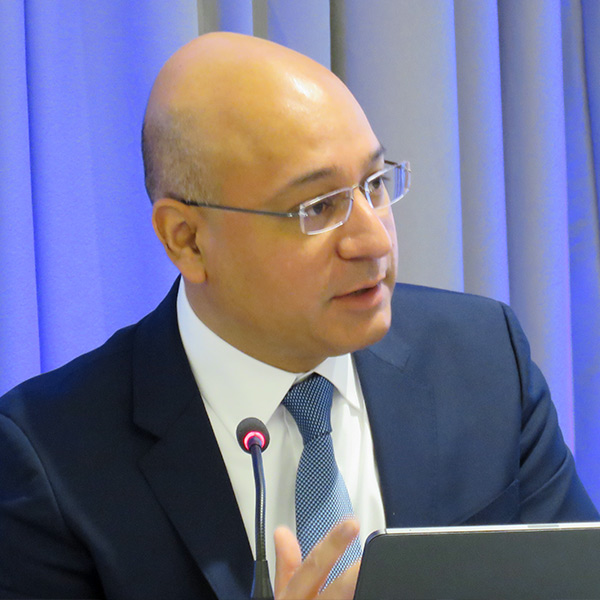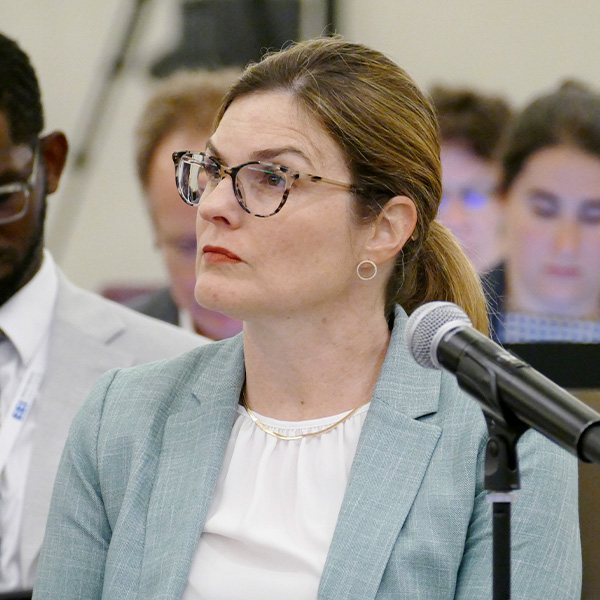A Department of Energy official defended the Biden administration’s pause on processing LNG export facilities at a Senate hearing Feb. 8.
Energy and Natural Resources Committee Chair Joe Manchin (D-W.Va.) and the committee’s Republicans told Deputy Energy Secretary David Turk the administration should reverse course and start processing applications again.
“Simply put: Politicizing LNG exports is reckless and dangerous, and it could empower and enrich Russia, Qatar and Iran,” Manchin said. “Deputy Secretary Turk, if I’m correct, DOE is just now beginning its new analysis of the economic impacts of our growing export levels. If this is the case, I strongly urge that this pause should be reversed immediately.”
Ranking Member John Barrasso (R-Wyo.) said the pause was all about the upcoming presidential election, with Biden trying to win votes from environmentalists.
“Critics have claimed that American natural gas exports would raise natural gas prices here at home,” Barrasso said. “The data shows otherwise. In the eight years since we began exporting LNG, the domestic spot price of gas is, on average, much lower than the domestic spot price on gas during the eight years before we were able to start exporting LNG.”
Turk said DOE is supposed to approve LNG export facilities to countries without free trade agreements when that is in the public interest, which is made up of economic, market, national security and environmental considerations. The last time the department reviewed how it analyzes new projects’ impacts was 2018, and much has changed since.
“First, the amount of U.S. natural gas that is being exported has dramatically increased, and we need to answer how authorizing exports beyond these unprecedented volumes could impact affordability for U.S. consumers and competitiveness of U.S. manufacturing,” Turk said in written testimony. “Second, our understanding of CO2 and methane’s effect on climate change have only become sharper, and we need to further improve our analytical tools to answer a range of questions about LNG exports’ climate and environmental consequences, both near and longer term.”
The country has 14 Bcfd of export capacity up and running now, with an additional 12 Bcf under construction and expected to be online by 2030. A total of 48 Bcfd has already been approved, which is nearly half of the total domestic production of 104.4 Bcfd.
The pause will not impact the ability to fuel allies, with Turk noting that European demand for LNG is falling, demand has peaked in Japan and South Korea will peak by the end of the decade, Turk said.
While domestic prices have not converged with the higher costs of global LNG’s yet, Turk said the Energy Information Administration has said that will happen eventually as exports grow.
The other side of the aisle of the committee defended DOE’s review, with Sen. Angus King (I-Maine), who caucuses with the Democrats, saying the department is trying to make sure the economic impact of continued growth in export capacity is worth it and to understand the lifecycle emissions of LNG exports.
“I don’t understand how you would take 50% of the production of a commodity and that won’t affect the price,” King said, referencing the total number of facilities that have already been approved.
Australia has ramped up its export capacity, and it has seen prices increase by a factor of five as it reached equilibrium with global markets.
Addressing Turk, King said, “My understanding is all you are trying to do is be sure before we add additional commitments that we know what the effect will be on a manufacturer in Michigan or a family in New England trying to heat their house.”
The analysis hopes to answer those kinds of questions, Turk said, and he expects the department will take “months, not years,” to get it done.
“If we were talking about considering a pause, this is a great, great panel for this,” Manchin said. “You have an executive order doing a pause, that’s the difference. That’s the difference I have with the administration.”
It would have made more sense to do the analysis first and then pause applications if it found additional capacity goes against the public interest, he added.
King pushed back, saying that the department is only doing its job, and it would not make any sense to keep approving projects only to find out “five years from now, it’s a complete disaster.”
“I’m just saying that the pause was ill advised from a political standpoint of sending out to the world right now that we might not be in the market,” Manchin said.

